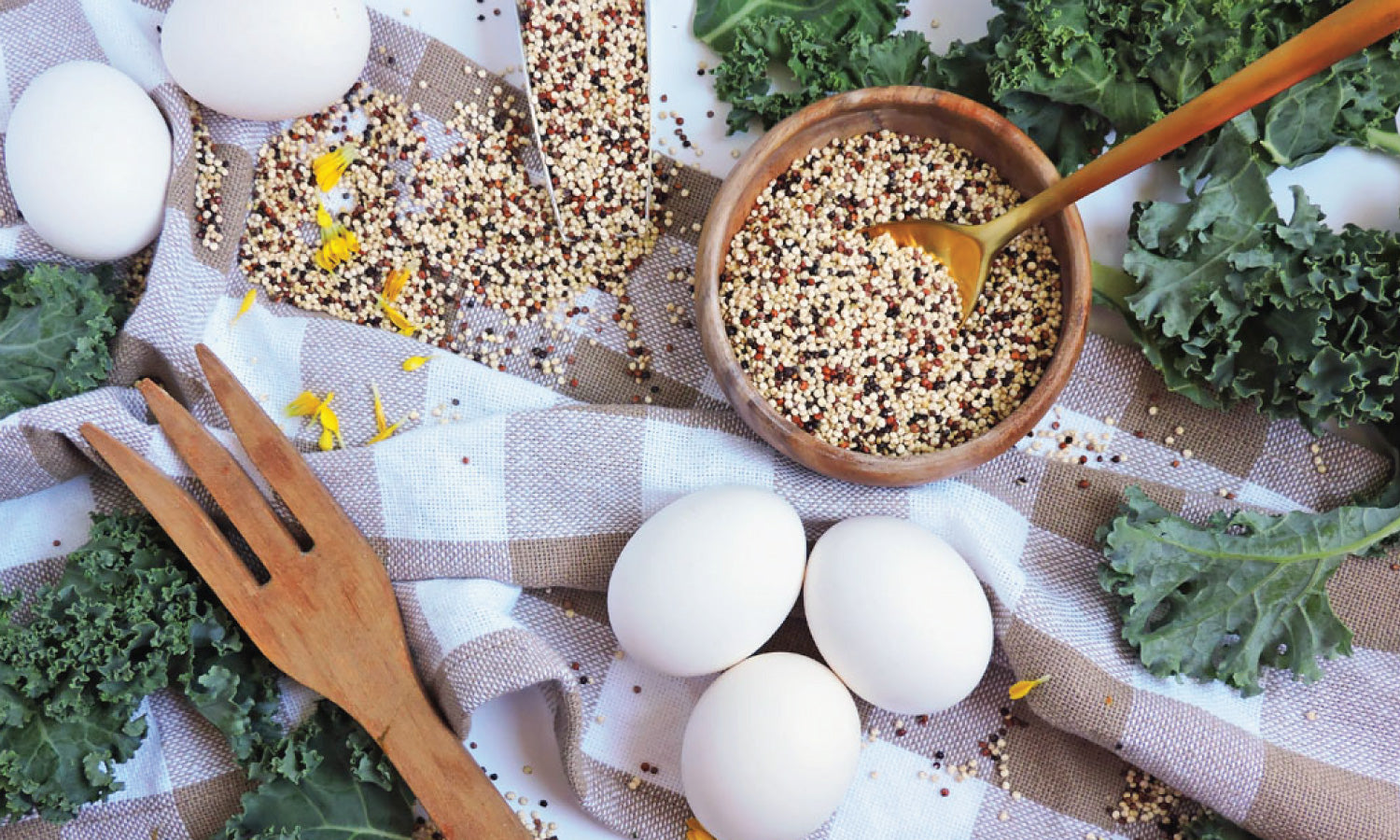
Top 5 Foods to Add to Your Diet
As a Registered Dietitian Nutritionist, I’m always asked about the healthiest foods to add to a typical daily diet regimen. There is such a large variety of foods that contain so many health benefits, but today, I’m going to share the top 5 foods that you should add to your diet.
- Salmon
Salmon is one of the best sources of omega-3 fatty acids and high-quality protein. A 3.5-ounce portion of salmon contains approximately 2.3 grams of omega-3 fatty acids, and at least 22-25 grams of high-quality protein. Unlike most other fats, omega-3 fats are considered "essential," meaning you must get them from your diet since your body can't create them. It’s recommended that healthy adults should consume at least two servings of salmon per week to help meet your omega-3 fatty acid needs, which have been linked to several health benefits. Some of these benefits include decreased inflammation, reduced blood pressure, and an improvement in the function of the cells that line your arteries.
The high-quality protein in salmon also plays an important role in the body. It helps your body heal after acquiring an injury, and it helps to protect and maintain bone health and muscle mass.
- Eggs
We all know that eggs are a great source of protein, but did you know that they’re also great for eye health? Eggs contain a great source of lutein and zeaxanthin, which are carotenoids that can impact visual health by decreasing the risk of macular degeneration. In addition to eggs, lutein and zeaxanthin can also be found in green leafy vegetables such as spinach, kale, collard greens, and broccoli, however, research suggests that the lutein and zeaxanthin in eggs are more bioavailable than from plant sources. Nutrient bioavailability is important for human health because it determines if a certain nutrient is accessible to the body upon consumption.
- Kale
Kale is a cruciferous vegetable that continues to increase in popularity. The most common type of kale is called curly kale or Scots kale, which has green and curly leaves and a hard, fibrous stem. Kale is considered a “superfood” due to the amounts of vitamins A, K, B6 and C, calcium, potassium, copper and manganese it contains. One cup of raw kale has just 33 calories and only 7 grams of carbohydrate; making it a great choice for those with diabetes or those trying to lose weight. In addition to the amount of nutrients it contains, kale has been linked to potentially reducing the risk of various types of cancer.
- Quinoa
Quinoa is one of the only a few plant foods that are considered a complete protein, which means that it contains all nine essential amino acids. Our bodies cannot produce these amino acids, so it’s important that we get them through foods, such as quinoa.
Quinoa contains a high fiber content that may help to improve blood sugar control. This can be beneficial for individuals with diabetes or prediabetes. Because of quinoa's high fiber content, it has been linked to reducing the risk of a number of health conditions. These conditions include constipation, heart disease, and hemorrhoids. Also, diets rich in fiber tend to promote a healthy weight because fiber helps you feel fuller for a longer period of time.
- Almonds
Almonds are considered to be one of the most popular nuts consumed by adults. According to the FDA, eating 1.5 ounces of almonds a day may help to reduce the risk of heart disease. Almonds are rich in magnesium, which is critical in preventing heart attacks and hypertension.
Almonds are also beneficial for maintaining a healthy weight. The fiber, protein and fat content of almonds means that it only takes a handful to keep you feeling full and satisfied, which can help to prevent overeating. Because almonds are naturally high in calories, it’s important to limit your serving size to the recommended 1 ounce, or 23 nuts.
In addition to choosing the right foods to help you live a healthier lifestyle, it's also important to choose the right beverage! My preferred beverage of choice is Southern Breeze Sweet Tea! I love it because it contains zero calories, and tons of flavor! Click HERE to check it out for yourself!
References:
Effects of Daily Almond Consumption on Cardiometabolic Risk and Abdominal Adiposity in Healthy Adults With Elevated LDL‐Cholesterol: A Randomized Controlled Trial. (n.d.). Retrieved from https://www.ahajournals.org/doi/10.1161/JAHA.114.000993
Egg Nutrition Facts & Info. (n.d.). Retrieved from https://www.eggnutritioncenter.org/
FDA Approves the First Qualified Health Claim: Tree Nuts and Heart Disease Prevention Takes the Lead. (2017, October 02). Retrieved from https://www.nuthealth.org/fda-approves-the-first-qualified-health-claim-tree-nuts-and-heart-disease-prevention-takes-the-lead/
Medical News Today. (n.d.). Retrieved from https://www.medicalnewstoday.com/
The many types and health benefits of kale. (n.d.). Retrieved from https://mayoclinichealthsystem.org/hometown-health/speaking-of-health/the-many-types-and-health-benefits-of-kale
 Andrea Mathis, MA, RDN, LD is an Alabama-based Registered Dietitian Nutritionist and owner of the healthy food blog, Beautiful Eats & Things. After completing her graduate studies at the University of Alabama, Andrea worked in several different healthcare settings including clinical, public health, and long-term care. Andrea believes in achieving optimal health by incorporating healthier eating habits into your lifestyle and making healthy eating fun! When she’s not running after her two toddlers, she’s going on exciting foodie adventures with her husband!
Andrea Mathis, MA, RDN, LD is an Alabama-based Registered Dietitian Nutritionist and owner of the healthy food blog, Beautiful Eats & Things. After completing her graduate studies at the University of Alabama, Andrea worked in several different healthcare settings including clinical, public health, and long-term care. Andrea believes in achieving optimal health by incorporating healthier eating habits into your lifestyle and making healthy eating fun! When she’s not running after her two toddlers, she’s going on exciting foodie adventures with her husband!
